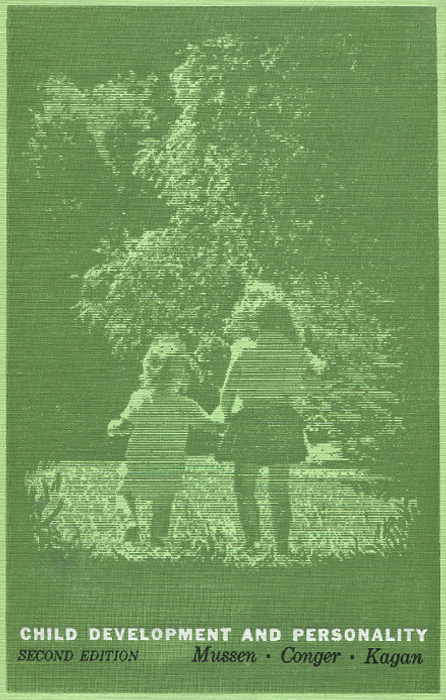Книга: Paul Henry Mussen, John Janeway Conger, Jerome Kagan «С hild Development and Personality»

|
The six years since the appearance of the first edition of this book have been exciting ones for child psychology. Systematic research has increased the probably validity of many statements that were largely speculative only five years ago. Other statements must now be revised or deleted in the face of new evidence. Furthermore, several previously neglected problem areas in human development have been subjected to the scrutiny of more empirical research, and some important topics, which had been minimally discussed because of insufficient information, can now be elaborated. Among these topics are constitutional differences among neonates, perceptual and cognitive development, the relation between personality and intellectualdevelopment, and the relation between physical changes and psychological conflicts during the adolescent period. A major innovation in this second edition is the extensive use of longitudinal case material from the files of the Fels Research Institute.... Издательство: "Harper&Row" (1963) Формат: 160x240, 648 стр.
Купить за 180 руб на Озоне |
Jerome Kagan
Jerome Kagan (born 1929) is one of the key pioneers of
In an empirical study by Haggbloom et al using six criteria such as citations and recognition, Kagan was found to be the 22nd most eminent psychologist of the 20th Century, just above
Personal background
Kagan was born in Newark, New Jersey, USA. He earned a B.S. degree from
Research and publications
He is the author of "Personal Development" (1971), "Growth of the Child" (1978), and "The Nature of the Child" (1982).
On the Need for Relativism. "American Psychologist", 1967, 22, 131-142.
Temperament
According to Kagan, (conventionally):
"temperament" refers to stable behavioral and emotional reactions that appear early and are influenced in part by genetic constitution." [Kagan, J: "Galen's Prophecy: Temperament in Human Nature.", page 40. Westview Press, 1994.]Kagan rejects "
Awards
Kagan won the Hofheimer Prize of the
References
External links
* [http://www.researchmatters.harvard.edu/people.php?people_id=669 Kagan's Harvard University Web Page (no longer available)]
* [http://necsi.org/faculty/kagan.html Kagan's NECSI Web Page (with a photo of him) ]
* [http://www.cbc.ca/ideas/calendar/2007/08_august.html The Ideas of Jerome Kagan] A link to the CBC Radio One "Ideas" Show
* [http://podcast.cbc.ca/mp3/ideas_20070212_1652.mp3 Interview with Jerome Kagan (CBC Radio One "Ideas" Podcast, (no longer available))]
Источник: Jerome Kagan
Другие книги схожей тематики:
| Автор | Книга | Описание | Год | Цена | Тип книги |
|---|---|---|---|---|---|
| Paul Henry Mussen, John Janeway Conger, Jerome Kagan | С hild Development and Personality | The six years since the appearance of the first edition of this book have been exciting ones for child psychology. Systematic research has increased the probably validity of many statements that… — Harper&Row, (формат: 160x240, 648 стр.) Подробнее... | 1963 | 180 | бумажная книга |
См. также в других словарях:
Intellectual movements in Iran — involve the Iranian experience of modernity and its associated art, science, literature, poetry, and political structures that have been changing since the 19th century. History of Iranian modernity Long before the European Renaissance generated… … Wikipedia
